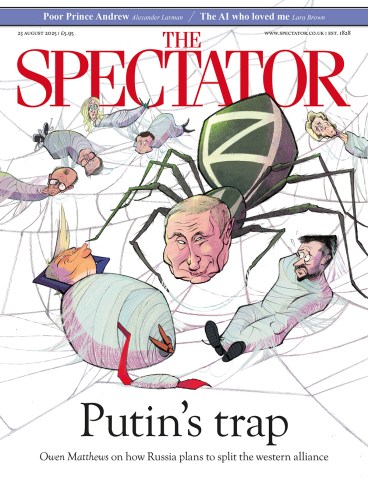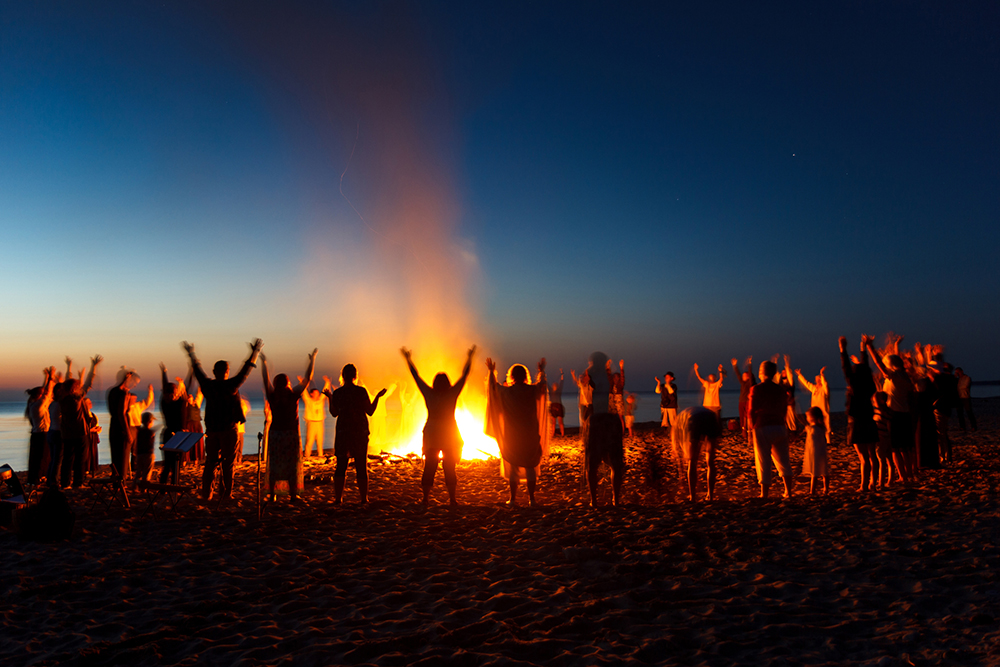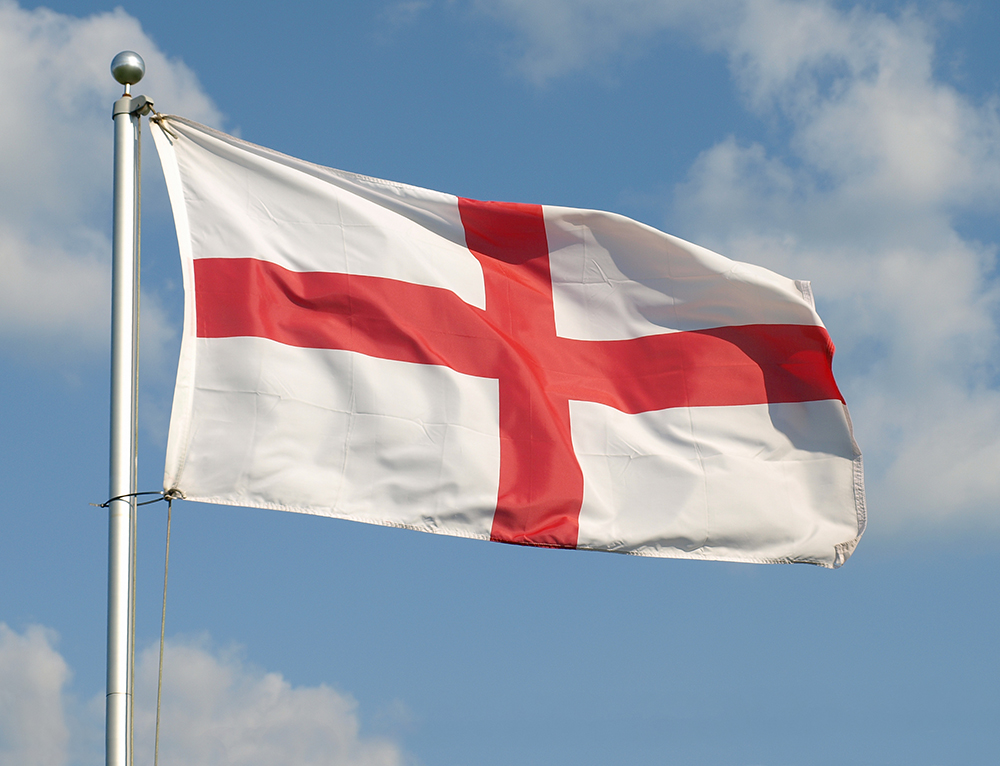
Dante’s Beach, Ravenna
The Feast of the Assumption began for me just after midnight with a WhatsApp message from my eldest son, Francesco Winston, 20, which said: ‘Papà don’t come, the police are everywhere.’
He and my eldest daughter, Caterina, 21, had invited me to a party on the beach organised by their group of friends to mark Ferragosto, the most important day of summer. There would be a bonfire and sausages, booze and guitars, and all the rest of it, until the blood-red sun emerged out of the sea at about 6 a.m. to bring it to an end.
The huge, shimmering sun rose up out of the sea, a wondrous way to end a party
I cannot remember the last time I went to a party. I avoid small talk if possible and am currently not drinking. So I was not exactly an ideal party guest. But I was curious to see the new young in action.
In Italy, it is against the law to start fires on the beach and where we are it is even an offence to be on the beach between 1 a.m. and 5 a.m., punishable by a fine of up to €500 (£432). The fine for sex on the beach, meanwhile, is €10,000 (£8,630).
The police, Francesco Winston explained on WhatsApp, were stopping people getting to the beach. But I am a bit of an expert on the behavioural patterns of the various types of police in Italy. So I remained at my desk in what is called my study, in front of its large window from where I could see the lights of the village a mile away across the fields, and waited. Sure enough, about half an hour later, I saw two sets of flashing blue lights moving slowly out of the village inland towards Ravenna through the hot velvet night.
I hauled myself into the Land Rover Defender and drove to the beach, which is hidden from the village behind a floodbank. The scene on the other side was like a medieval battlefield. There were at least half a dozen bonfires on the mile-long beach and everywhere there were bleached white tree trunks of all shapes and sizes, hurled by the winter sea on to dry land, many now planted in the sand to form primitive structures. To have put a stop to such an act of collective rebellion would have required a far more serious police presence than two squad cars.
‘We’re the third bonfire along,’ Francesco Winston had told me. I stumbled along the edge of the calm sea where the sand was firm until he and Caterina came into view to guide me to their party, where I sat down on a large tree trunk in the dunes. There were about 40 people gathered around the fire and during the four hours I was there I neither saw or sensed violence. Nor was there even much shouting, just the excited voices of young people talking, interspersed with bouts of acoustic guitar and singing. Once, a young man who was drunk staggered towards me and my tree trunk vantage point and said: ‘Who the fuck are you?’ But before I could answer he said: ‘Ah yes, Caterina’s dad.’ Then he staggered off. It was the closest I came to a conversation.
Every now and again couples would disappear into the dunes as they do. It reminded me of when I was their age in the deep south of Italy and fell in love for the first time and how it ended in tragedy when I said I did not want our child and she had an abortion. It had only just become legal in a country where today nearly 70 per cent of gynaecologists refuse to do it. I feel it was murder, though did not at the time. It ruined her life.
I saw two shooting stars and above our gas rig, which is a mile offshore and lit up like a temple, I saw what I was able to identify using my phone as Venus and Jupiter, very close to one another and very bright. With the arrival of dawn, the faces of those around me became visible for the first time, as did the beach, which was carpeted with enough driftwood to fuel a thousand bonfires.
Then the huge, shimmering sun rose up out of the sea, a wondrous way to end a party, and it was time for bed. I emerged that evening for mass in celebration of the ascension of the Virgin Mary ‘body and soul’ into heaven, but first I had to go to Lidl. I parked the Defender in the mums-with-children space outside the entrance and sent in my two youngest sons, Giovanni-Maria, 13, and Giuseppe, ten, to do the shopping. ‘Mi scusi,’ said a wheedling male voice. ‘Can you help me buy baby milk powder for my three-month-old daughter?’
I turned my head to look at the source of the voice. He was nicely tanned, shortish and slim, with gold-rimmed glasses, immaculate jet-black goatee beard, slicked-back Hollywood idol hair, mustard-yellow bermuda shorts and a snazzy polo shirt. He looked as if he had just come ashore from a yacht.
I had no change but was intrigued. He was a 38-year-old Romanian who had been in Italy for 18 years. His name was Gheorghe and he was a builder due to start a new job at the end of the month. But he had run out of money and now had to beg, and this was his first day. One man he accosted barked: ‘Show me your hands!’ He did. ‘You haven’t done a day’s work in your life!’ said the man triumphantly and marched off. Gheorghe looked at his hands in search of a reply.
I asked him how much he needed to buy the powdered milk. ‘Mellin 1 is €17.10 here, €25 in the chemist.’ I checked on my phone. It was true. I asked him how much he had raised so far. ‘€7.50,’ he said. Sod it. When my boys returned, I told them to change a €50 note in the bar next door and gave him €10. ‘God bless you,’ he said. ‘You’re mad,’ said Giovanni-Maria. ‘So what?’ I replied.
We arrived at the church a bit late and my wife was already there with Magdalena, 17, and Rita, 16. As I sat down, she made the sign of the cross at me, as she often does.








Comments